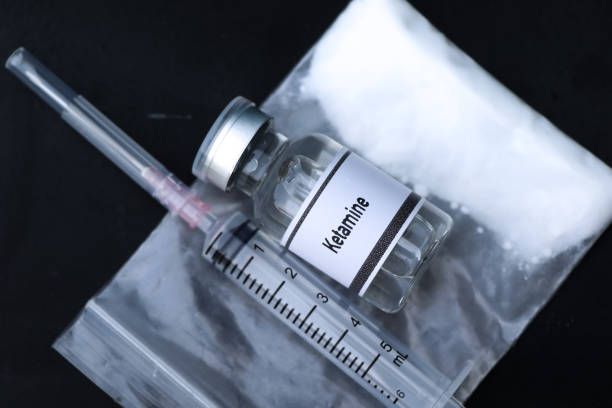Study Shows Continued Use of Certain Antipsychotics During Pregnancy
May Increase Risk of Gestational Diabetes
New York, NY. Women who take certain antipsychotic medications and continue the use of these medications through pregnancy may be at increased risk for gestational diabetes, according to new research published online today by the American Journal of Psychiatry.
The authors, from Brigham and Women’s Hospital, Harvard Medical School, Harvard School of Public Health and Massachusetts General Hospital, presented their findings at a media briefing in New York, where they had come to deliver a presentation at the Annual Meeting of the American Psychiatric Association (APA).
There is a well-established link between some antipsychotic medication and metabolic side effects, such as weight gain and diabetes, which are risk factors for gestational diabetes. Gestational diabetes, a complication of pregnancy, can lead to problems including preeclampsia, cesarean delivery and neonatal hypoglycemia. An estimated 5 to 9 percent of women develop gestational diabetes during pregnancy. In addition, up to 50 percent of women with gestational diabetes later develop type 2 diabetes.
The researchers looked at the risk of developing gestational diabetes associated with continued use of several antipsychotic medications, including aripiprazole (Abilify), ziprasidone (Geodon), quetiapine (Seroquel), risperidone (Risperdal) and olanzapine (Zyprexa), during pregnancy.
The study involved a large group of women enrolled in Medicaid who were pregnant, did not have diabetes, and had been taking antipsychotic medication in the three months prior to pregnancy. They compared those who continued medication during pregnancy with those who stopped during pregnancy.
The study found that depending on the medication, the absolute risk of gestational diabetes among the study participants continuing medication was 4.2 percent to 12 percent; among those stopping medication during pregnancy it ranged from 3.8 percent to 4.7 percent.
For two of the five antipsychotic medications examined, olanzapine and quetiapine, there was an increased risk for gestational diabetes compared with women who discontinued these medications, after adjustment for potential confounding variables. There was not an increased risk of gestational diabetes for women taking aripiprazole, ziprasidone and risperidone.
“It is important to consider alternative explanations for these findings,” said study coauthor Krista F. Huybrechts, M.S., Ph.D., Associate Professor of Medicine, Brigham and Women’s Hospital, Harvard Medical School. “The main concern is potential factors not captured fully in the data, particularly obesity. However, we demonstrated that the imbalance in the obesity prevalence between those continuing treatment and those discontinuing would have to be very high to fully explain the increased risk. This seems unlikely given that all women were treated before the start of pregnancy and we accounted for a broad range of proxy variables.”
The authors note that risk of diabetes is just one factor in a medication decision during pregnancy; other factors include the benefits of the medication and the risks of changing treatment. They suggest that further research on switching antipsychotic medications during pregnancy would help in the making treatment decisions.
Nearly One in Three People Know Someone Addicted to Opioids;
More than Half of Millennials believe it is Easy to Get Illegal Opioids
New York, NY. The opioid crisis continues to weigh heavily on the minds of Americans, according to a new national poll released today by the American Psychiatric Association, (APA). Nearly a third of Americans say they know someone who is or has been addicted to opioids or prescription painkillers. Nearly half feel it is extremely or somewhat easy to access opioids for illicit use. Americans strongly favor improving access to treatment over imposing stricter punishments to address the problem.
An estimated 2 million people in the United States have a substance use disorder related to prescription opioid pain medication and the number of overdose deaths from prescription and illicit opioids doubled from just over 21,000 in 2010 to more than 42,000 in 2016.
More Americans say they know someone who is or has been addicted to opioids or prescription painkillers compared to this time last year (31 percent today versus 27 percent in 2017). Nearly half (46 percent) say the opioid crisis is impacting people like them, up from 37 percent in 2017. And nearly one in 10 say they have taken an opioid or prescription painkiller without a prescription. Five percent of U.S. adults say they have abused or been addicted to opioids or prescription painkillers, up from 1 percent in 2017, possibly reflecting a greater awareness and willingness to talk about the problem.
The poll also found a growing percent of Americans say it would be easy for someone to access opioids for illicit purposes (46 percent in 2018 versus 39 percent in 2017). People who misuse opioids often get them from a family member or friend who has a prescription. Millennials (52 percent) are more likely to believe it’s easy to get opioids than baby boomers (41 percent).
More Americans believe people can recover from an opioid addiction. Four in five Americans believe people can recover, up from 73 percent in 2017. Three-quarters of U.S. adults (74 percent) say they “understand how someone accidentally gets addicted to opioids,” up from 69 percent in 2017.
When asked about how policymakers should address the problem, Americans strongly favor improving access to treatment (62 percent) over imposing stricter punishments and enforcement (26 percent).
“Our poll findings show that Americans are increasingly aware of the problem of opioid addiction and increasingly believe people can recover, said APA CEO and Medical Director Saul Levin, M.D., M.P.A.“The crisis has become personal to many and they want to see treatment available for those affected. We are ready to work with the Administration and Congress to curb this national epidemic.”
These findings are from an APA-sponsored poll conducted online using ORC International’s CARAVAN® Omnibus Survey. The surveys were collected form a nationally representative sample of 1,004 adults during the period March 22-25, 2018 and from a similar poll of 1,019 adults in April 20-23, 2017. The margin of error is +/-3.1 percentage points.
New Research: Increased Prevalence of Depression, PTSD and Medical Conditions
among Military Personnel who Experience Trauma or Sexual Trauma
New York, NY. Military members who experience trauma, including sexual trauma, during their service are at increased risk of major depressive disorder, posttraumatic stress disorder (PTSD) and chronic medical conditions, according to new research presented today at the Annual Meeting of the American Psychiatric Association here. Adverse childhood experiences also increased risk of PTSD among female service members.
PTSD and depression are common psychiatric disorders in military service members. Female military personnel are at high risk for exposure to military sexual trauma during their service; about 30 percent of woman veterans report being sexually assaulted during their service. Researchers from the University of Iowa looked at the associations of military sexual trauma, adverse childhood events and military deployment/combat experience with major depressive disorder, PTSD and various medical conditions, including diabetes, fibromyalgia, fatigue or chronic pain.
The study involved 388 military personnel (201 male and 187 female) recruited through a study conducted at the Iowa City Veteran’s Affairs Medical Center. Study participants took part in computer-assisted telephone interviews. A total of 63 participants had experienced either attempted or completed sexual assault, including 58 women (31 percent of the interviewed population).
Depression was significantly associated with history of military trauma and adverse childhood experiences for men and women. The study found a significant association between PTSD and a history of military sexual trauma, military trauma and adverse childhood experiences among females. However, among males, PTSD was only associated with military trauma. Based on a limited medical status assessment, the study found a significant increase in chronic health conditions among men with history of military trauma.
The study was conducted by Gen Shinozaki, M.D., M.Sc., Associate Professor of Psychiatry, University of Iowa, Carver College of Medicine, and Nick Bormann, medical student at University of Iowa Carver College of Medicine. Shinozaki is Board Certified in psychosomatic medicine psychiatry. He obtained his medical degree from University of Yamanashi School of Medicine, Yamanashi, Japan, and completed a residency in general psychiatry and a fellowship in psychosomatic medicine at the Mayo Clinic. He completed a master’s degree in quantum optics at the University of Tokyo and master’s degree in bioinformatics at the University of Iowa. He has been active in genetics and epigenetics research of depression and PTSD, as well as delirium research, funded by National Institute of Mental Health and the National Science Foundation.
New Research: Opiates May Be Playing an Increasing Role in
Suicides, Even Outside of Overdoses
New York, NY. The percentage of people who died by suicide and who had opiates in their system more than doubled from 2006 to 2017, particularly in the most recent years, according to new research being presented today at the American Psychiatric Association’s Annual Meeting here.
The rate of suicide in the U.S. is on the rise; about 45,000 people died by suicide in 2016 up from about 35,000 in 2007. Similarly, opiate use is increasing. Substance use is an important risk factor for depression and suicide. Previous research has found increasing rates of accidental opiate overdose as well as opiate use listed as a contributor to death by suicide. However, death investigation and documentation is not uniform across jurisdictions.
Maryland has a statewide medical examiner system that uses strict protocols to prepare full toxicology reports on all suicides and unexplained deaths. This data was used to evaluate opiate prevalence in 5,876 people who died by suicide in Maryland from 2006 to the first half of 2017.
Study authors Paul Nestadt, M.D., Ramin Mojtabai, M.D., M.P.H., Ph.D., and Daniel Borota, with Johns Hopkins University, looked at the proportion of people who tested positive for opiates at the time of suicide each year over the 10-year period, controlling for age, sex, and race. The same analysis was conducted for presence of cocaine and for alcohol intoxication to determine if any change in prevalence was unique to opiates.
The percentage of people who died by suicide and who had opiates in their system doubled from 8.8 percent in 2006 to 17.7 percent in 2017. There was no significant change in the proportion of people who were positive for cocaine or alcohol intoxication. The largest increases in positive opiate tests were found in 2014 through 2017, and the increase was most prominent in non-whites and in males.
When overdose suicides were removed from the sample (to eliminate deaths where opiates may have been used as a method of suicide) the increase in opiate prevalence was slightly more pronounced. These results suggest that opiates are playing an increasing role in completed suicides, even outside of overdoses, the authors concluded. Increased vigilance and awareness for suicidality is warranted, they suggest, among both opiate prescribers and users.
Paul Nestadt, M.D., is a Fellow in the Psychiatric Epidemiology Training program at the Johns Hopkins Bloomberg School of Public Health, as well as the supervising psychiatrist for the Anxiety Disorders Consultation Service at Johns Hopkins Hospital. He completed his psychiatry residency at Johns Hopkins, where he continues to teach residents and medical students. His research focuses on the epidemiology of suicide, specifically on the roles of firearms and opioid access in the increasing rates of suicide. Ramin Mojtabai, M.D., M.P.H., Ph.D., is a psychiatrist and professor of Public Health and Psychiatry at Johns Hopkins University. His research focuses on barriers to behavioral health treatment seeking in community settings and pharmacoepidemiology of psychiatric drugs. Daniel Borota is a medical student at the Johns Hopkins University School of Medicine.




Leave A Comment